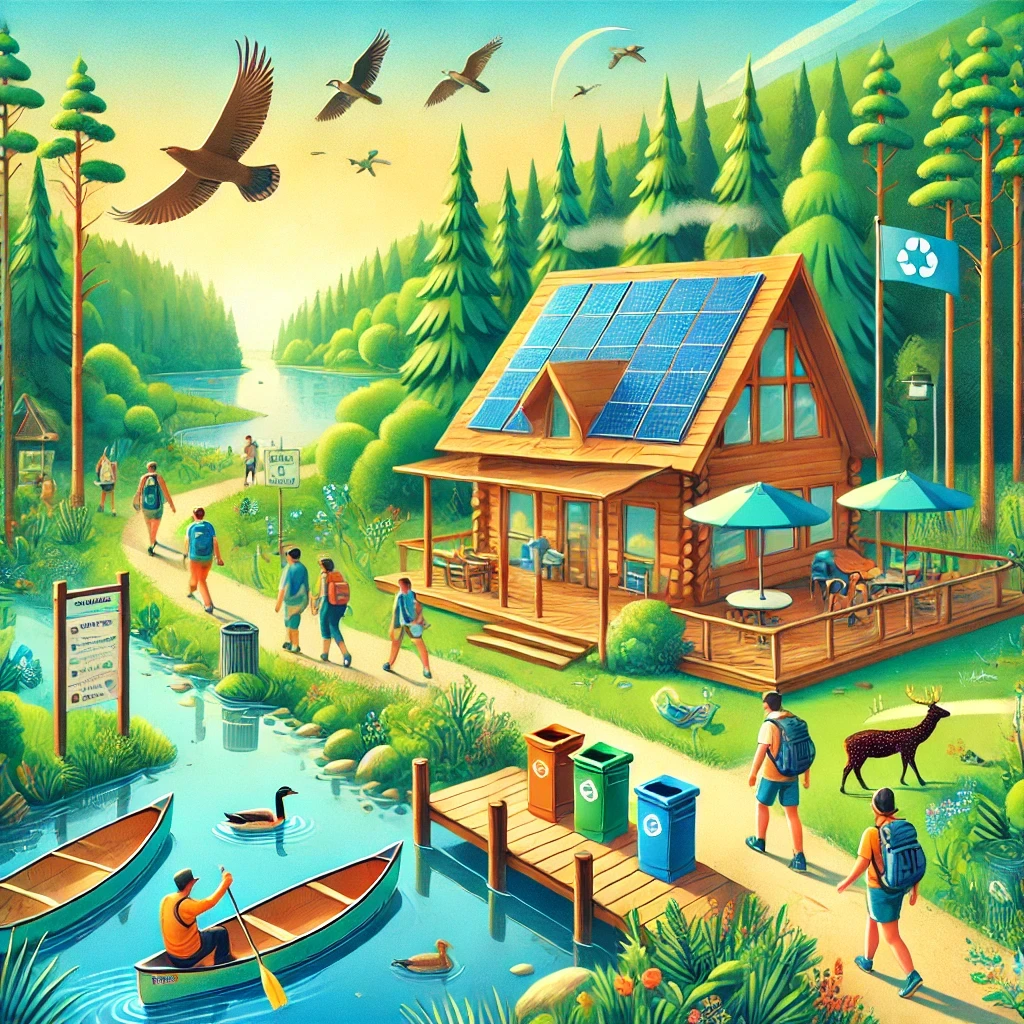Introduction – The Role of Sustainability in Tourism
The tourism industry is changing and sustainability is at the heart of this transformation. More people are becoming aware of the environmental and social impact of their travels, leading to a growing demand for responsible and sustainable tourism practices. This shift isn’t just a trend – it’s a vital evolution to ensure that the beautiful destinations we love to visit are preserved for future generations.
Recently, the tourism sector has faced significant challenges, highlighting the need for a more sustainable approach. From environmental damage caused by over-tourism to the unpredictable effects of climate change and social disruptions in local communities, it’s clear that the old ways of doing things are no longer viable.
Sustainable tourism offers a solution. It promotes practices that minimize negative impacts and maximize benefits for local environments, economies, and communities. It’s about making thoughtful choices that protect natural resources, respect cultural heritage, and support economic resilience. Adopting sustainable practices in tourism isn’t just beneficial—it’s crucial for the future of our planet, the longevity of the industry, and the well-being of you as a traveler or business owner in this sector.
In this article, we’ll explore the current and future challenges in the tourism industry, explain what sustainable tourism is, discuss its many benefits, and show how Idemoly can help you make this important transition.
What is Sustainable Tourism?
Sustainable tourism is all about making travel good for the planet and the people who live there. It means being mindful of how or travels impact the environment and local communities. This approach encourages eco-friendly practices, like reducing wase and conserving natural resources, while also supporting local cultures and economies. Simply summarized – sustainable tourism helps ensure that the beautiful places we visit today will still be around for future generations to enjoy.
What are the challenges?
As we look to the future, the tourism industry faces several big challenges. Addressing these will be key to ensuring that travel remains enjoyable and sustainable for everyone. Here are some of the main issues.
Climate Change:
- Impact on Destinations: Places we love to visit, like beaches and mountains, are at risk from rising sea levels and changing weather. This could mean fewer beautiful spots to enjoy.
- Unpredictable Seasons: Weather patterns are becoming less predictable, which can disrupt travel plans and the peak seasons that many destinations rely on.
Shortage of Resource:
- Water Shortages: Many tourist hotspots are in areas that already struggle with water supply. More tourists can make this problem worse, leading to conflicts over water use.
- Energy Use: Tourism relies heavily on energy, especially fossil fuels. Shifting to greener energy sources is necessary but challenging.
Over-Tourism:
- Crowded Destinations: Too many tourists can overwhelm popular spots, damaging the environment and infrastructure. This makes visits less enjoyable for everyone.
- Cultural Impact: An influx of tourists can sometimes dilute local cultures, making them feel less authentic and more commercialized.
Health and Safety Concerns:
- Pandemics: COVID-19 showed us how a global health crisis can bring travel to a halt. Future health emergencies could have similar effects, requiring strong health and safety measures.
- Security Issues: Political instability, terrorism, and natural disasters can pose risks to travelers and affect where and when people feel safe to travel.
Technological Changes:
- Digital Advances: Technology is changing fast, offering new ways to enhance travel experiences but also requiring constant updates and investments.
- Cybersecurity: As travel becomes more digital, protecting personal data from cyber-attacks is increasingly important.
Economic Inequality:
- Income Gaps: Differences in income can affect both travelers and local communities. Ensuring that tourism benefits everyone fairly is crucial.
- Economic Instability: Fluctuating economies and exchange rates can impact how affordable travel is, influencing where and how people travel.
How to implement sustainable practices?
Implementing sustainable practices in tourism is essential for protecting our environment, supporting local communities, and ensuring the industry’s long-term success. Here’s how tour providers can make their operations more sustainable.
Sustainable Branding
- Communicate Your Commitment: Let your customers know about your dedication to sustainability through your branding and marketing materials. Highlight eco-friendly initiatives and certifications.
- Eco-Friendly Products: Offer sustainable products and services, such as eco-friendly accommodations, tours, and activities. This can attract eco-conscious travelers and set you apart from competitors.
Sustainable Development Planning:
- Environmental Impact Assessments: Conduct assessments to understand how your projects affect the environment. Use this information to minimize negative impacts and enhance positive outcomes.
- Community Involvement: Engage local communities in planning and decision-making processes. Their insights can help create tourism projects that benefit everyone.
Eco-Friendly Infrastructure & Waste Management
- Green Building Practices: Use sustainable materials and energy-efficient designs for your infrastructure. Consider renewable energy sources like solar or wind power.
- Waste Reduction: Implement recycling programs, reduce single-use plastics, and encourage guests to participate in waste reduction efforts.
Community-Based Tourism:
- Local Partnerships: Collaborate with local businesses and artisans to offer authentic experiences that support the local economy.
- Cultural Respect: Ensure that your tourism activities respect and preserve local traditions and cultural heritage.
Green Experiences and Eco-Tourism:
- Nature-Based Activities: Promote activities that highlight and protect natural environments, such as wildlife tours, hiking, and conservation projects.
- Education and Awareness: Educate your guests about the importance of sustainability and how they can contribute during their stay.
Employee Training & Engagement:
- Sustainability Training: Provide training programs for your staff to educate them about sustainable practices and their importance.
- Empowerment: Encourage employees to suggest and implement sustainable ideas. Engaged and informed staff can be powerful advocates for sustainability.
How idemoly can help you with Sustainable Tourism?
At Idemoly, we’re passionate about helping tour providers adopt sustainable practices. Whether you’re looking to green your brand, build eco-friendly infrastructure, or support local communities, we’ve got you covered.
Our team of experts will work with you to create and implement strategies that are good for the environment and great for your business. By partnering with Idemoly, you’ll attract eco-conscious travelers and make a positive impact on the world. Let’s work together to create a sustainable future for tourism. Contact us today to start your journey towards sustainability!


